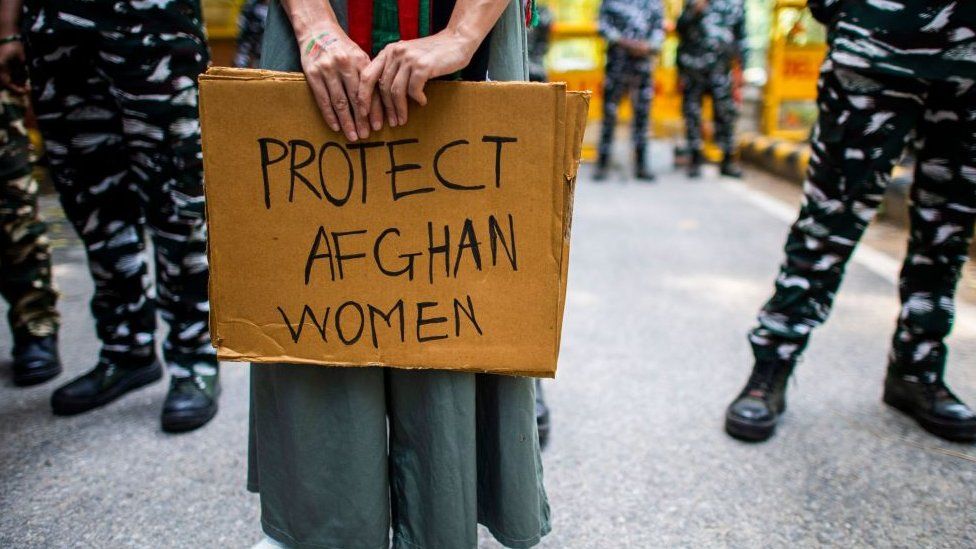An Afghan female activist has been forcibly taken from her home, the latest in a string of alleged arrests by the Taliban.
A source told the BBC that authorities had arrested Mursal Ayar at her home in the capital Kabul on Wednesday.
Ms Ayar is the sixth woman to have been taken by the Taliban in the past weeks, the BBC understands.
The Taliban has denied detaining the women. A spokesman said they were looking into Ms Ayar’s case.
“This is a case which has just happened. We are investigating it,” Taliban spokesman Bilal Karimi told the BBC.
There are fears for Parwana Ibrahim, Tamana Paryani and Ms Paryani’s three sisters Zarmina, Shafiqa and Karima who went missing on 19 January.
For weeks now, the reported detention of the women in Afghanistan has sparked huge outcry online and concern from rights groups.
The activists had in mid-January taken part in peaceful protests in the capital calling for the women to be given work, study and political rights under the new Taliban rule.
Days later, Ms Paryani later posted a video on social media showing armed men entering her apartment block.
“Help, the Taliban have come to my house,” she said before the video ended.
In a previous interview with the BBC, Suhai Shaheen, who hopes to become the Taliban’s ambassador to the UN, accused Ms Paryani of “making fake scenes and shooting films in order to seek asylum abroad”.

Ms Ibrahim’s brother-in-law was also abducted while the pair were travelling in Kabul, the UN has said.
The UN’s human rights office on Saturday said again that it was “very alarmed” over the continued disappearance of people connected with the recent women’s rights protests.
“We are gravely concerned for their well-being and safety”, said Ravina Shamdasani, spokesperson for the High Commissioner for Human Rights on Tuesday.
“The lack of clear information on the location and well-being of these and other individuals, perpetuates a climate of fear and uncertainty”, she added.
The UN noted that the Taliban had on Saturday announced an investigation into the women’s disappearance but said confirmed information was still lacking.
They also said the reports of missing women highlighted “a pattern of arbitrary arrests and detentions”, as well as torture and mistreatment of civil rights activists, journalists and former government officials in Afghanistan.
The UN urged the Taliban authorities to “send clear messages to their rank-and-file that there must be no reprisals against people who demonstrate peacefully and exercise their rights to freedom of expression and peaceful assembly”.
Under Taliban rule Afghanistan has become the only country in the world which publicly limits education on the basis of gender, which is a major sticking point in the Taliban’s quest for legitimacy, and in the lifting of international sanctions on the group.
The regular protests by women highlighting the issue are being seen as a huge source of embarrassment to the group.
This video can not be played
To play this video you need to enable JavaScript in your browser.


























